What are Eyeglasses Lenses
Eyeglasses lenses are an essential component of eyewear, serving as a corrective tool for those with vision impairments as well as a protective element against environmental factors such as UV light and blue light emissions from digital screens. These lenses are carefully crafted to correct refractive errors by bending light rays to allow for proper focus on the retina, enhancing the wearer's vision. Depending on the individual's prescription, eyeglasses lenses can be designed to correct nearsightedness (myopia), farsightedness (hyperopia), astigmatism, or presbyopia.
Eyeglasses lenses are made from various materials including plastic, glass, and polycarbonate, each offering distinct advantages in terms of weight, durability, and optical clarity. The lenses are also treated with different types of coatings such as anti-reflective, scratch-resistant, and UV protective layers to improve performance and longevity. Additionally, there is a wide range of lens designs from single-vision lenses that correct for one field of vision to multifocal lenses which include bifocals and progressives that provide clear vision at multiple distances.
The selection of the right eyeglasses lenses is crucial not only for visual acuity but also for comfort and lifestyle compatibility. For instance, individuals who spend significant time outdoors may benefit from photochromic lenses that darken in response to sunlight, while those who work extensively on computers might opt for lenses with blue light filtering capabilities. The principles behind eyeglasses lenses are grounded in optics and physics, but their application is deeply personalized to meet the unique visual needs of each individual.
Types of Eyeglasses Lenses
In the realm of eyewear, a diverse array of eyeglasses lenses exists to cater to the varying requirements of users. Single vision lenses are designed to correct one field of vision and are typically prescribed for individuals who need help with either distance or near tasks. Bifocal lenses feature two distinct optical powers to assist with both reading and distance vision, often denoted by a visible line across the lens.
Another category includes photochromic lenses which intelligently adjust their tint based on exposure to UV light, providing a comfortable viewing experience in both indoor and outdoor environments. Aspheric lens designs offer a slimmer profile by having varying degrees of curvature across their surface, which not only reduces distortions but also enhances aesthetic appeal.
Progressive lenses stand out as an advanced option that eliminates the visible lines found in bifocals or trifocals, providing a smooth transition between varying degrees of lens strength for near, intermediate, and distance vision. Moreover, specialized coatings like anti-reflective can greatly reduce glare from screens and bright lights, while materials such as polycarbonate provide impact resistance which is ideal for sports or active lifestyles.
How to choose Eyeglasses Lenses
Businesses looking to purchase wholesale eyeglasses lenses must consider several factors to ensure they meet the needs of their clients effectively. Material choice is paramount; options such as plastic or polycarbonate offer durability and lighter weight which could benefit active users or children. High-index materials like MR-7 or MR-8 cater to those requiring strong prescriptions without the bulkiness of traditional thick lenses.
Vision correction needs dictate the design selection; whether it's single vision for those with either nearsightedness or farsightedness, bifocal for combined near and distance requirements, or progressive lenses for a seamless all-encompassing solution. For businesses whose clientele includes heavy digital device users, offering options like blue light filtering can provide added value.
Furthermore, businesses should factor in additional lens features that enhance user experience. Coatings like super hydrophobic offer water resistance and easy cleaning, while anti-blue ray treatments protect against digital eye strain. The selection should align with the diverse lifestyles and preferences of end consumers, ensuring a range that covers everything from basic protective usage to specialized applications like night driving enhancements.
Best Eyeglasses Lenses on Alibaba.com
Alibaba.com stands as a global marketplace connecting businesses with a comprehensive range of wholesale eyeglasses lenses suitable for an array of visual needs and preferences. With its inception in 1999, Alibaba.com has grown into an expansive platform where buyers can access over 200 million products from reliable suppliers around the world—eyeglasses lenses being just one example. The platform's commitment to facilitating trade across borders makes it an ideal destination for businesses seeking quality products tailored to their customers' needs.
Buyers on Alibaba.com can explore a multitude of lens options—from progressive and photochromic lenses to specialized coatings like EMI (Electromagnetic Interference) and super hydrophobic treatments—all designed with the end-user's comfort and convenience in mind. Furthermore, Alibaba.com's Trade Assurance service ensures that payments are safeguarded until orders are fulfilled satisfactorily, instilling confidence in every transaction.
Alibaba.com's extensive selection offers businesses the opportunity to source eyeglasses lenses that align with the latest trends in fashion and technology without compromising on quality or performance. By leveraging Alibaba.com's tools and services designed for ease-of-use on both desktop and mobile platforms, businesses can efficiently find the products they need while benefiting from streamlined communication and order handling services. This all-in-one approach makes Alibaba.com not just a marketplace but also a partner in global trade solutions—helping businesses everywhere thrive in an ever-evolving market.
Common FAQs for Eyeglasses Lenses
What materials are commonly used for eyeglasses lenses?
Materials such as plastic, polycarbonate, and various high-index plastics like MR-7 and MR-8 are common for eyeglasses lenses. They offer a balance of durability, weight, and optical clarity suitable for a range of prescriptions and lifestyles.
How do I choose between different types of eyeglasses lenses?
Selection should be based on the specific vision correction needs of your customers, the material preferences, and the intended use cases, such as everyday wear, sports, or extensive screen time.
What are the benefits of aspheric lens designs?
Aspheric lenses provide a slimmer profile with less distortion compared to traditional spherical lenses. They are aesthetically pleasing and can offer a wider field of clear vision.
Are there eyeglasses lenses that adjust to different lighting conditions?
Yes, photochromic lenses automatically darken in response to UV light exposure, making them ideal for users who transition frequently between indoor and outdoor environments.
What type of eyeglasses lenses should be offered to customers who use digital devices extensively?
Lenses with blue light filtering capabilities are beneficial for customers who spend a lot of time on digital devices as they help reduce eye strain and improve visual comfort.
Can progressive lenses be a good option for all age groups?
Progressive lenses are particularly beneficial for presbyopic individuals who require correction for multiple distances but can be adapted for any age group depending on their visual needs.
What coatings are available for eyeglasses lenses, and what are their advantages?
Coatings such as anti-reflective reduce glare from light sources, super hydrophobic coatings repel water and make cleaning easier, and scratch-resistant coatings prolong the life of the lenses.
How do bifocal lenses differ from progressive lenses?
Bifocal lenses have two distinct optical powers separated by a visible line, while progressive lenses provide a gradual transition between multiple powers without any visible lines for a more natural visual experience.
What should businesses consider when selecting frame materials to pair with eyeglasses lenses?
Frame materials should be chosen based on durability, weight, hypoallergenic properties, and compatibility with the lens type. Options include stainless steel, acetate, titanium alloys, and polycarbonate.
How important is UV protection in eyeglasses lenses?
UV protection is crucial in preventing harmful UV rays from damaging the eyes. Lenses with built-in UV protection are essential for outdoor wear and overall eye health.
What features contribute to the durability of eyeglasses lenses?
Features like impact resistance offered by polycarbonate materials, scratch-resistant coatings, and robust frame materials contribute to the overall durability of eyeglasses.
Are there eco-friendly options available for eyeglasses lenses?
Yes, businesses can opt for eco-friendly lens materials and coatings that minimize environmental impact while still providing high optical quality.


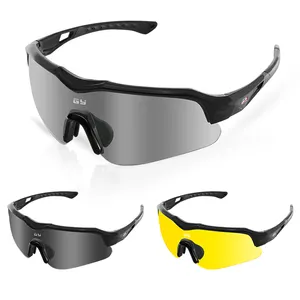


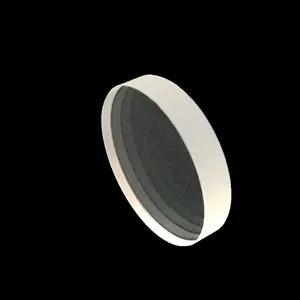










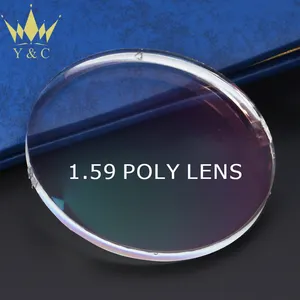
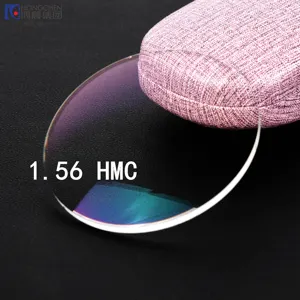


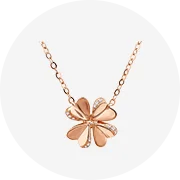













 浙公网安备 33010002000092号
浙公网安备 33010002000092号 浙B2-20120091-4
浙B2-20120091-4